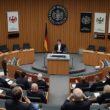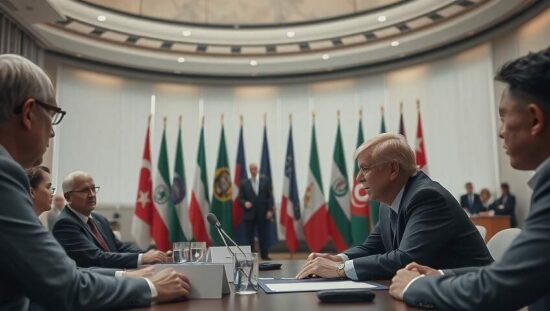Taiwan’s Deputy Foreign Minister Wu Chih-chung has issued a stark warning to US President Donald Trump, cautioning against abandoning Taipei amidst escalating tensions with Beijing. In an interview with the Frankfurter Allgemeine Zeitung, Wu asserted that fulfilling Trump’s pledge to “make America great again” necessitates unwavering support for Taiwan, highlighting the island’s robust $800 billion economy and its status as the United States’ seventh-largest trading partner. He stressed the critical interdependence between the two nations within the semiconductor ecosystem.
Wu characterized Taiwan’s current position as its strongest to date but underscored the unprecedented level of threat posed by China. He acknowledged the inevitability of Trump’s anticipated meeting with Chinese President Xi Jinping in South Korea, stating, “He must talk to China” while vehemently opposing any transactional approach that would sacrifice Taiwan for improved relations. “Taiwan to sacrifice, would seriously damage the credibility of the United States in the region”. Such a move, Wu warned, would send a detrimental signal to regional allies including the Philippines, Japan and South Korea, undermining US influence and commitment to stability.
Addressing recent reports surrounding US trade tariffs on Taiwan (potentially amounting to 20%) and alleged delays in a military aid package, Wu acknowledged the uncertainty regarding the tariffs but framed Trump’s past record favorably regarding arms sales. He pointed to Trump’s initial term approval of high-precision weaponry transfers, suggesting consistent bipartisan US interest in regional stability.
The deputy minister emphasized the strategic significance of Taiwan’s semiconductor industry, particularly the contribution of Taiwan Semiconductor Manufacturing Company (TSMC) to global technological advancement and national security. The expansion of TSMC facilities abroad, including the recent establishment of ESMC in Dresden, Germany, would, according to Wu, not only safeguard Taiwan but also bolster the security of Germany, Japan and the United States.
Beyond economic benefits, Taiwan hopes for enhanced diplomatic opportunities stemming from these collaborations. Wu specifically cited the recent playing of Taiwan’s national anthem during a reception for Germany’s Day of Unity in Taipei as a tangible result of the ESMC investment in Dresden, contrasting this with previously restricted diplomatic engagements. He highlighted the recent visit of the Saxon Minister-President Michael Kretschmer to Taiwan as further evidence of a thaw in relations, previously unavailable.





